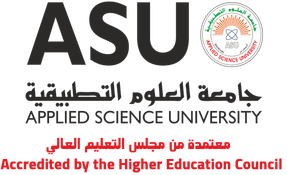Summary of the Week
Welcome to the 16th issue of the 2nd year of the President’s News Digest.
I would like to start this issue of the News Digest by re-emphasizing the importance of the students centered approach to education.
 All course portfolios should be up to date and to the highest standards, and the quality of delivery in the classrooms should be in line with university’s requirements in terms of study plans, relevant teaching materials and exciting modes of delivery. Please remember that the accreditation visiting panel will attend classes and observe how teaching and learning is conducted.
All course portfolios should be up to date and to the highest standards, and the quality of delivery in the classrooms should be in line with university’s requirements in terms of study plans, relevant teaching materials and exciting modes of delivery. Please remember that the accreditation visiting panel will attend classes and observe how teaching and learning is conducted.
In this section, I would like to brief you about the main findings from a conference I attended last week at Asyout University in Egypt addressing quality assurance issues in universities in the Arab World.
Alzarqaa University in Jordan was a major player in organizing this conference with strong presence from their Chairman of BODs, Chairman of the BOT and their President. Mr Anwar Al Nawaf, who is studying at Asyout for a PhD in Law, also attended the conference. In the session I chaired, various papers about quality assurance systems and centers in Arab Universities were presented which stressed on the role of quality assurance centres and how they can play a pivotal in a university in ensuring quality standards are met at Programme, College and University levels. Most papers covered the issue of creating a culture of quality in universities in the Arab World. Most presentations touched on the issue of making quality embedded in the values and practices of any institution.
any institution.
One particular paper addressed the role of academic staff and programme coordinators in delivering education of the highest quality. If academic staff are delivering high standards education following strict quality guidelines, then the benefits to the students can be easily realized. In this paper, it was clearly emphasized that the programme coordinators should ensure all learning outcomes are realized by the students. Annual Programme Reviews should be produced and scrutinized by the department, college, quality and university councils.
Course portfolios are used to specify the course specifications, study plans, samples of teaching materials and the mapping of course learning outcomes and programme learning outcomes within the context of a solid assessment framework.
It was clearly stated in all presentations that quality assurance and monitoring is a collective responsibility within any university, but the quality centre should provide all the tools, systems and policies to ensure that quality standards are maintained.
A good number of papers have also focused on the importance of institutional accreditation and how it can be achieved through a  rigorous quality assessment process. It was clear that most institutional accreditation methodologies use similar indicators with particular emphasis on governance, management, teaching and learning, students support, research, community engagement, facilities and labs including learning resources and quality systems and policies and procedures.
rigorous quality assessment process. It was clear that most institutional accreditation methodologies use similar indicators with particular emphasis on governance, management, teaching and learning, students support, research, community engagement, facilities and labs including learning resources and quality systems and policies and procedures.
It is evident that universities can only be transformed, only when their quality systems are rigorous, sound and well understood by everybody in the University. Quality should be at the heart of all what we do and should be embedded in all our daily practices.
During the visit to Asyout University, I met with the President of the University and his advisors and in the presence of Mr Anwar and our discussions touched on many opportunities for collaboration especially in the areas of staff development, the legal clinic, research development and staff and students exchanges.

From 18 to 19 February, the President attended the Executive Council of the Association of Arab Universities meeting held at Alain University of Science and Technology in the UAE. The Council discussed the need to modernize the Bylaws of the Association, and the preparation for future Annual General Meetings of the Association.
Last week, the Chairman of the BOTs and Director of Admin and Finance attended the Kuwaiti Embassy’s celebrations of National and Liberation days.
This week, we will have an induction day for our new staff. It is important to make our new staff feel welcome and to make them familiar with our strategies, policies, procedures, ICT and HR systems. In addition, it is important for them to become familiar with admissions criteria, academic advising, plagiarism, preparation of course portfolios, and students support.
I would like to conclude this edition of the News Digest by reminding our colleagues about the importance of ensuring consistencies between our bylaws, policies and procedures, university catalogue, programme handbooks, quality manual, staff handbook, students’ handbook, research handbook, SIS information, organizational chart, committees’ structure, and website information. This is important from a quality point of view, especially that it is a major requirement for accreditation purposes. Prof Hilal, Prof Saad, Dr Ahmed Azzam and Mr Hatem have formed a group that is meeting on a daily basis to ensure that such consistencies are achieved.



